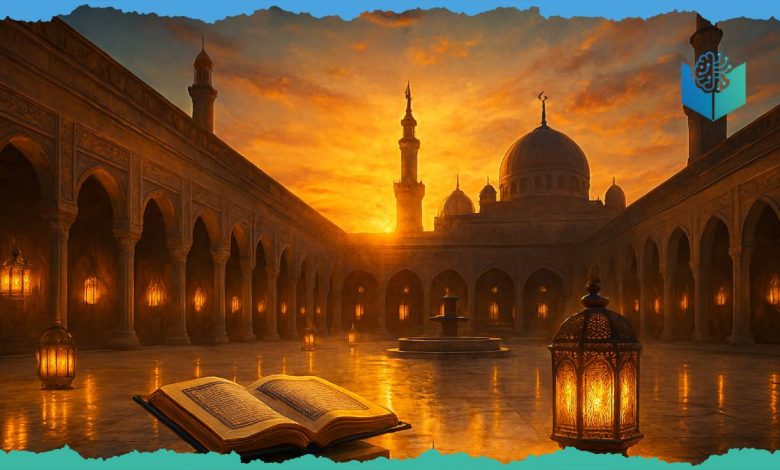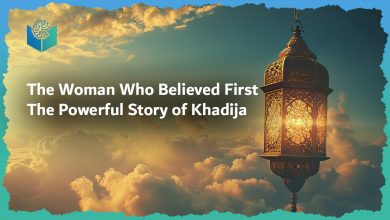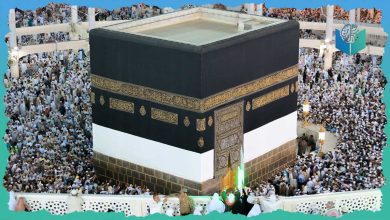How Islam Spread

The spread of Islam is one of the most fascinating chapters in world history, a story often misunderstood, simplified, or even misrepresented. Beyond myths and political narratives lies a deeper truth: Islam expanded through its moral force, spiritual message, and commitment to Quranic justice. This faith, rooted in peace and equity, inspired millions across continents to embrace a new way of life based on truth and fairness.
Understanding the True Nature of the Spread of Islam
When people discuss the spread of Islam, it is often framed as a political or military expansion. However, the reality runs much deeper. The early Muslim community spread the message primarily through ethical guidance in Islam, which attracted hearts long before it conquered lands. Traders, scholars, and spiritual teachers became the real ambassadors of Islam, introducing the message of the Quran through honesty, justice, and compassion.
The Quran reminds believers: “Invite to the way of your Lord with wisdom and good instruction, and argue with them in a way that is best.” (Quran 16:125). This verse shows that the spread of Islam was meant to be through character, dialogue, and wisdom, not compulsion.
The Foundation: Quranic Justice and Moral Integrity
The spread of Islam was rooted in its strong emphasis on Quranic justice and moral integrity. Early Muslims practiced fairness, honesty, and ethical behavior in daily life, reflecting the Quranic principle: “O you who believe! Stand out firmly for justice, as witnesses to Allah…” (Quran 4:135). This commitment to righteousness drew people to Islam, showing that its appeal lay in character and moral guidance, not force.
Quranic Justice as the Core of Expansion
Quranic justice played a key role in how Islam resonated with diverse societies. The Quran set a new moral order in an age of inequality, tribalism, and oppression. Emphasizing fairness and accountability built a foundation where justice was seen as worship.
As the Quran declares: “O you who believe! Stand out firmly for justice, as witnesses to Allah, even though it be against yourselves or your parents and relatives.” (Quran 4:135). This divine call to integrity and equality gave Islam universal appeal, showing that righteousness stands above race, class, or power.

Fairness in Islam: A Universal Value
The concept of fairness in Islam reached beyond the courtrooms. It influenced trade, leadership, and daily behavior. Muslims were taught that ethical conduct was an act of faith. It was this fairness that drew people in places like Africa, Southeast Asia, and the Balkans to Islam—not force, but fairness.
Through centuries, communities that interacted with Muslim traders and scholars were impressed by their honesty, reliability, and sense of justice. These values were not mere social customs; they were living reflections of ethical guidance in Islam.
Early Expansion: A Message of Justice, Not Conquest
The early generations of Muslims carried Islam’s message far beyond Arabia. Yet, their goal was not simply to extend the empire, but to fulfill the Quranic call to justice and mercy. The spread of Islam in Persia, North Africa, and Spain was often accompanied by new systems of law, education, and social welfare that reflected the Quranic lifestyle of equity and compassion.
In Egypt, for instance, Christians found protection under Muslim rule, often preferring it to prior oppressive regimes. In Spain, Jewish communities flourished during Islamic governance. This coexistence was not an accident; it was a natural result of Quranic teachings that emphasized dignity for all humanity.
The Quran says: “There shall be no compulsion in religion” (Quran 2:256), underscoring that conversion was never to be forced. Instead, people were drawn to the ethical, intellectual, and spiritual appeal of Islam.
The Role of Trade and Scholarship
Trade and scholarship were instrumental in spreading Islam peacefully. Muslim merchants showcased fairness in Islam through honest trade, earning trust in new regions. Scholars preserved and shared knowledge, reflecting ethical guidance in Islam. Together, trade and learning made Islam’s message accessible, respected, and intellectually compelling.
Traders as Ambassadors of Faith
In regions like Indonesia, West Africa, and the Indian subcontinent, Islam spread peacefully through trade routes. Muslim merchants were known for their honesty and reliability. Their commitment to fair trade practices was a living example of fairness in Islam. Over time, communities that traded with Muslims embraced the religion because they saw it reflected in action, in ethics, in business, and in character.
These traders did not only bring goods; they brought a moral code shaped by Quranic justice. The balance between material and spiritual success made Islam deeply attractive to diverse cultures.

Scholars and the Preservation of Knowledge
Another vital factor in the spread of Islam was the contribution of scholars and intellectuals. From the 8th to the 14th century, Islamic civilization became a beacon of learning. Libraries, observatories, and universities flourished in cities like Baghdad, Cordoba, and Timbuktu.
These centers became living symbols of ethical guidance in Islam, where faith and reason coexisted harmoniously. Scholars from different religions came together to translate works of philosophy, medicine, and astronomy as a testament to the inclusiveness of Islamic history and civilization.
The Prophetic Model: Leadership Through Mercy
The Prophet Muhammad (ﷺ) embodied the perfect example of how justice and compassion can transform societies. His leadership was marked by humility and mercy. When he entered Mecca victorious after years of persecution, he declared forgiveness instead of revenge, and it was a defining moment in the spread of Islam through mercy rather than power.
The Quran states: “And We have not sent you, [O Muhammad], except as a mercy to the worlds.” (Quran 21:107). This mercy became the moral compass for all Muslim leaders who came after him, reminding them that true strength lies in restraint and compassion.
Islam and Ethical Governance
The growth of early Muslim empires reflected an effort to apply Quranic justice in governance. Leaders were expected to rule with fairness, transparency, and service to their people. The Caliphs, particularly the Rightly Guided ones, were known for their humility and accountability; ruling as servants, not masters.
When Caliph Umar ibn al-Khattab patrolled the streets at night to check on the welfare of his citizens, he demonstrated what fairness in Islam meant in practice. Leadership was not a privilege, but a trust before God.
This idea resonates with the Quranic principle: “Indeed, Allah commands you to render trusts to whom they are due and when you judge between people to judge with justice.” (Quran 4:58). It is this divine standard that guided Islamic governance for centuries.
The Role of Culture and Language in the Spread of Islam
Cultural Adaptation and Respect
Islam never sought to erase local cultures; instead, it uplifted them through ethical guidance in Islam. As Muslims entered new regions, they learned local languages, respected traditions, and adapted the message to fit different social contexts. This inclusivity helped make Islam resonate universally.
From Persia’s poetry to Africa’s oral traditions, Islamic values merged with local heritage to create rich, diverse expressions of faith. This adaptability shows that the Quranic lifestyle is not rigid but timeless—able to inspire across cultures and generations.

The Power of Language and the Quran
At the heart of the spread of Islam lies the Quran itself, a book that transformed civilizations. The Quran’s message of unity, compassion, and justice transcended linguistic barriers, inspiring translations and commentary across languages. Yet, the Arabic text remains preserved, ensuring that divine authenticity is never lost.
The Quran teaches: “Indeed, We have sent it down as an Arabic Qur’an so that you may understand.” (Quran 12:2). This linguistic preservation allowed Muslims everywhere to stay connected to the original revelation, even as Islam expanded across continents.
Ethical Guidance in Islam: The Key to Harmony
The message of Islam is not limited to ritual; it is a complete moral framework. Ethical guidance in Islam shapes personal behavior, social relationships, and governance. This holistic approach made Islamic civilization thrive, creating harmony between faith and reason, religion and culture, and individual and society.
Muslims are called to live by the Quran, not just read it. The Quran declares: “Indeed, Allah does not change the condition of a people until they change what is in themselves.” (Quran 13:11). This principle empowered individuals to reform themselves and their societies, laying the foundation for the moral strength that fueled Islam’s growth.
Myths About the Spread of Islam
Despite centuries of evidence to the contrary, some still claim that Islam spread by the sword. Historical research and authentic sources prove otherwise. The real force behind the spread of Islam was its justice, compassion, and inclusiveness. Wherever Islam went, literacy, trade, and science followed.
Regions like Southeast Asia, West Africa, and the Indian subcontinent embraced Islam peacefully, not through war, but through trust, admiration, and the appeal of fairness in Islam. The lived ethics of Muslims spoke louder than armies ever could.
Lessons for the Modern World
Today, the ethical guidance in Islam remains as relevant as ever. In a time marked by inequality, division, and moral confusion, the Quran offers timeless wisdom on justice and compassion. By returning to these values, societies can find balance and harmony once again.
The spread of Islam in history serves as a reminder that change begins with values. When individuals and nations commit to justice, mercy, and truth, they reflect the divine message that shaped civilizations.
Conclusion: The Everlasting Legacy of Quranic Justice
The story of how Islam spread is ultimately the story of human transformation through divine values. Rooted in Quranic justice, guided by fairness, and fueled by compassion, Islam reshaped the moral landscape of humanity.
Through the centuries, its message has inspired reformers, scholars, and seekers of truth across the world. By exploring resources like ayaat.ai, learners today can reconnect with this heritage and deepen their understanding of Islamic history and civilization.
The Quran remains the heart of this legacy—a timeless book of guidance calling humanity toward peace, justice, and unity.
Q&A
How was Islam spread?
Islam spread through a combination of trade, scholarship, preaching, and exemplary moral conduct. Its emphasis on Quranic justice and ethical guidance attracted people across cultures.
What are the 4 ways Islam spread?
Islam primarily spread through preaching and missionaries, trade and commerce, migration and settlement, and the example of moral and just leadership. Each method emphasized persuasion and ethics over force.
Where did Islam spread from 1200 to 1400?
Between 1200 and 1400, Islam expanded in regions such as Southeast Asia, West Africa, and parts of India. Scholars, merchants, and Sufi teachers played key roles in introducing Islamic teachings to these areas.





